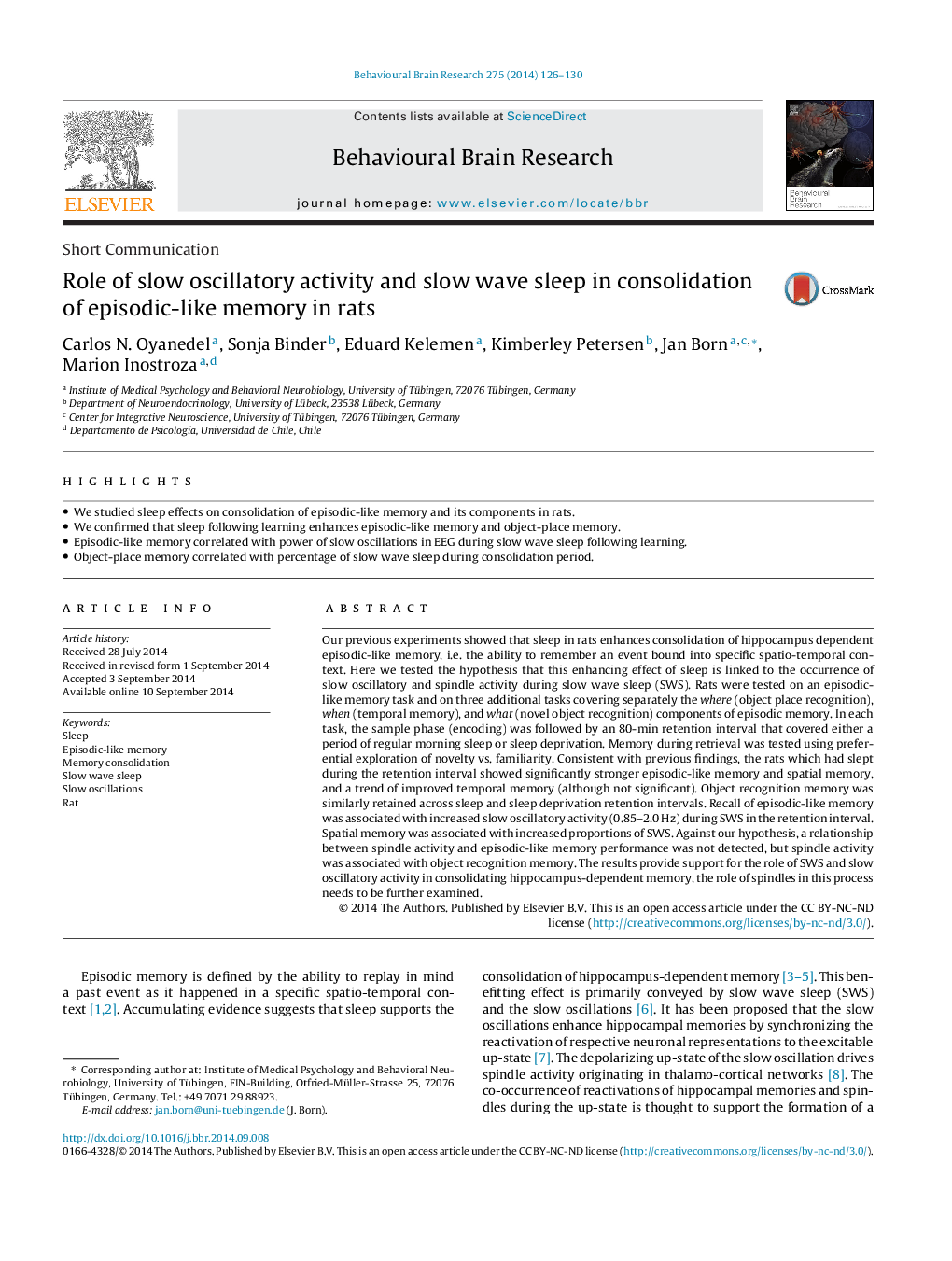| Article ID | Journal | Published Year | Pages | File Type |
|---|---|---|---|---|
| 6257883 | Behavioural Brain Research | 2014 | 5 Pages |
â¢We studied sleep effects on consolidation of episodic-like memory and its components in rats.â¢We confirmed that sleep following learning enhances episodic-like memory and object-place memory.â¢Episodic-like memory correlated with power of slow oscillations in EEG during slow wave sleep following learning.â¢Object-place memory correlated with percentage of slow wave sleep during consolidation period.
Our previous experiments showed that sleep in rats enhances consolidation of hippocampus dependent episodic-like memory, i.e. the ability to remember an event bound into specific spatio-temporal context. Here we tested the hypothesis that this enhancing effect of sleep is linked to the occurrence of slow oscillatory and spindle activity during slow wave sleep (SWS). Rats were tested on an episodic-like memory task and on three additional tasks covering separately the where (object place recognition), when (temporal memory), and what (novel object recognition) components of episodic memory. In each task, the sample phase (encoding) was followed by an 80-min retention interval that covered either a period of regular morning sleep or sleep deprivation. Memory during retrieval was tested using preferential exploration of novelty vs. familiarity. Consistent with previous findings, the rats which had slept during the retention interval showed significantly stronger episodic-like memory and spatial memory, and a trend of improved temporal memory (although not significant). Object recognition memory was similarly retained across sleep and sleep deprivation retention intervals. Recall of episodic-like memory was associated with increased slow oscillatory activity (0.85-2.0Â Hz) during SWS in the retention interval. Spatial memory was associated with increased proportions of SWS. Against our hypothesis, a relationship between spindle activity and episodic-like memory performance was not detected, but spindle activity was associated with object recognition memory. The results provide support for the role of SWS and slow oscillatory activity in consolidating hippocampus-dependent memory, the role of spindles in this process needs to be further examined.
